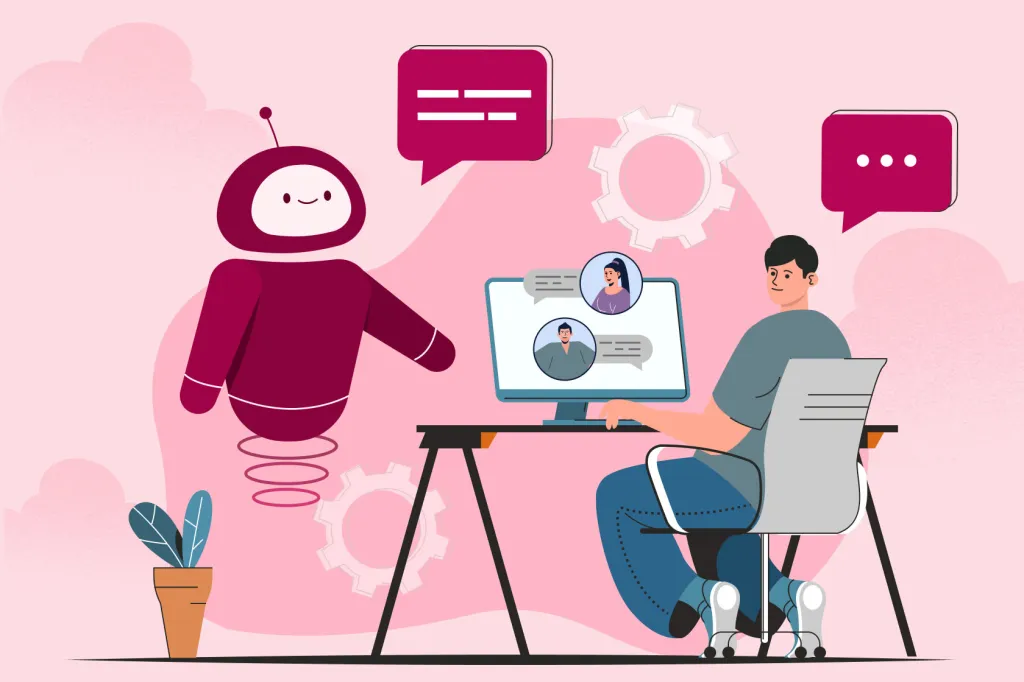From Human to Human to Bot to Bot
Customer service has undergone a remarkable transformation in recent...
Check out our latest update on our consumer platform here!
Published on 13 Dec 2024
The landscape of customer experience is undergoing a profound transformation, driven by the rapid advancement of AI agents. This evolution...

The landscape of customer experience is undergoing a profound transformation, driven by the rapid advancement of AI agents. This evolution isn’t merely about implementing new technology—it’s about fundamentally reimagining how businesses interact with their customers in an era where artificial intelligence has become sophisticated enough to understand, anticipate, and fulfill customer needs with unprecedented precision.
Today’s consumers have developed expectations that would have seemed unrealistic just a few years ago. The ubiquitous presence of technology in their daily lives has conditioned them to expect immediate, personalized responses at any hour of the day. This shift has created a new baseline for customer service, where 24/7 availability isn’t just a luxury—it’s a fundamental expectation.
The real power of AI agents lies in their ability to deliver consistency at scale while maintaining a personal touch. Unlike traditional customer service systems, modern AI agents can seamlessly track and recall every interaction across multiple channels, creating a unified customer experience that feels cohesive and intentional. Whether a customer reaches out through social media, email, phone, or chat, they encounter the same level of personalized service informed by their complete history with the brand.
This contextual awareness represents a significant leap forward in customer service capability. AI agents don’t just respond to queries—they understand the customer’s journey. They know when a customer has recently made a purchase, browsed specific products, or encountered issues with their service. This comprehensive understanding allows them to provide relevant, proactive support that anticipates needs before they’re explicitly stated.
The learning capabilities of modern AI agents set them apart from their predecessors. Each interaction becomes a data point that helps refine and improve future engagements. This continuous learning process enables AI agents to adapt their communication style, recommendations, and problem-solving approaches based on what has proven most effective with similar customers in similar situations. The result is a constantly evolving service model that becomes more sophisticated and effective over time.
Perhaps most remarkably, these AI agents have developed the ability to maintain authentic, human-like engagement while operating at machine scale. They can detect emotional nuances in customer communications and respond with appropriate empathy, creating interactions that feel natural and understanding rather than mechanical and scripted. This emotional intelligence, combined with their ability to learn and adapt, helps build genuine connections between customers and brands.
The impact of this evolution extends beyond individual customer interactions. Businesses are discovering that AI agents can significantly influence customer loyalty and lifetime value. When customers consistently receive personalized, proactive service that anticipates their needs, they develop stronger emotional connections with brands. These connections translate into increased customer retention, higher purchase frequency, and more positive word-of-mouth referrals.
However, the rise of AI agents in customer experience also presents new challenges. Businesses must carefully balance automation with human touch, ensuring that AI enhancement doesn’t come at the cost of authentic human connection when it’s needed most. This has led to the development of sophisticated escalation protocols, where AI agents can seamlessly transfer complex or sensitive interactions to human agents while maintaining context and continuity.
Privacy and data security have also become paramount concerns as AI agents collect and process more customer information. Successful implementations require robust data protection measures and transparent policies about how customer information is used. Businesses must build trust by demonstrating responsible data stewardship while delivering the personalized experiences customers expect.
Looking ahead, the evolution of customer experience will likely accelerate as AI technology continues to advance. We can expect to see even more sophisticated predictive capabilities, deeper emotional intelligence, and more seamless integration across customer touchpoints. The businesses that thrive will be those that successfully harness these capabilities while maintaining a clear focus on customer needs and preferences.
The new standards being set by AI agents in customer experience aren’t just raising the bar for service quality—they’re fundamentally changing how customers interact with businesses. As these systems become more sophisticated, the gap between customer expectations and service capabilities continues to narrow, creating opportunities for businesses to deliver truly exceptional experiences at scale.
The future of customer experience lies in this delicate balance between technological capability and human connection. As AI agents continue to evolve, they’re not just meeting current customer expectations—they’re actively shaping what customers will come to expect from their interactions with businesses in the years to come.
